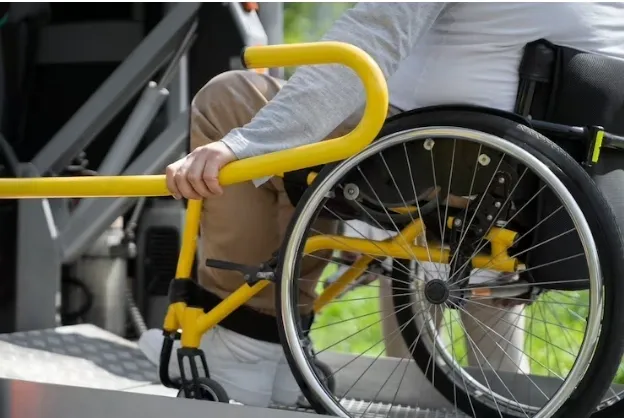Dialysis patients often have multiple-hour visits to a treatment center, often three or four times weekly. Due to the length and frequency of these appointments, it may be difficult to rely on family members or alternative services for reliable transportation, and patients who drive alone may do so at their own risk during a vulnerable time.
Professional transportation services for dialysis patients offers an additional means of arriving at appointments on time and safely and leaving with compassionate care and consideration.
Why You Need Dialysis Transportation
Driving yourself to dialysis can be risky, according to experts that is why non emergency medical transportation (NEMT) is recommended for dialysis patients. You should not drive yourself if you have any serious potential side effects (such as low blood pressure or low blood sugar), especially if you have not had many appointments before and are unsure of your reaction to treatment.
These are a few of the main justifications why patients opt for transport services for dialysis rather than driving themselves.
Fatigue
Driving might make dialysis tiredness worse because it can be physically exhausting. Driving while fatigued can be risky since you may not be completely alert and prepared to respond to unforeseen circumstances.
Side Effects of Medicine
Low blood pressure from dialysis may result in lightheadedness. Your ability to drive may be affected by these adverse effects. Giving oneself ample time to heal before getting behind the wheel is crucial.
Physical Restriction
Numerous physical symptoms, such as cramps, fatigue, and low blood pressure, can be brought on by dialysis. Having these symptoms makes it challenging to drive safely. So, if you are experiencing any of these symptoms, finding alternative transportation to dialysis appointments is best.
Emotional Anxiety
There are psychosocial side effects of dialysis. And following treatment, if you’re feeling unhappy or agitated, this may affect how you make decisions while leaving the facility.
Fluid Surcharge
The danger of dialysis includes fluid excess, which can result in edema and breathlessness. It could be challenging for you to drive safely if you have any of these symptoms.
Travel time to the treatment facility
Driving several times a week will be taxing and stressful if the treatment facility is far from your home. Therefore, plan to use a different mode of transportation.
Additionally, your costs may increase if you have to pay for petrol and parking. And if you have a limited or fixed income, this may not be easy.
Benefits of Dialysis Transportation
1. Practicality
You won’t have to worry about getting to and from the dialysis center if you have access to transportation for dialysis. Plan your ride so that you arrive on time every time.
2. Dependability
In research, one-third of those surveyed admitted that they had shortened their dialysis sessions to avoid missing their rides. You can take as much time as necessary for each session if you have a dependable dialysis transportation service.
3. Comfiness
Transportation for dialysis patients has comfy seats. They might even feature luxuries like air conditioning and a TV to make the journey more comfortable.
4. Security
Drivers of dialysis vehicles receive training to protect the security of their passengers. This can ease your mind if you’re concerned about the adverse effects of your medication.
5. Community Support
Patients who utilize the same dialysis transportation service as you can exchange contacts. It’s a fantastic way to connect with others and receive support during a challenging procedure like dialysis.
6. Health Observation
While being transported to and from appointments, some dialysis transportation assistance services may monitor you and provide support. This is significant because it could aid in identifying and avoiding potential transit-related issues.
7. Mental calm
Having dependable transportation can reduce your worries about driving yourself or requesting a loved one to guide you to dialysis. Concentrating on your appointment and health is simpler due to this piece of mind rather than on transportation issues.
9. Care Access
You can live quite a distance from the closest nephrology center if you reside in a remote or underserved area. No matter how extensive the travel is, a reputable EMS transportation service guarantees you can always reach where you need to be.
10. It Makes Everything Simpler for Everyone Involved
One family member frequently takes time off from work or even quits their career to consistently drive another family member to dialysis appointments.
You may get the high-quality treatment and dialysis you require without interfering with your family’s regular schedule if you choose a dependable dialysis transportation service.
Why Choose Care 22 For Dialysis Transportation?
Care 22 is often requested for compassionate care and transportation to and from dialysis appointments. If you have a dialysis schedule, we can book your trips in advance to routinely drive you there safely and take you in to your appointment at the scheduled time. After dialysis treatments, we will be ready for your departure at the scheduled time and we may even check in with your team or the facility to confirm everything is going as scheduled. With the help of our team, you may quickly return to the convenience of your home without any hassles or delays.
Care 22’s staff will ensure you have the safest transportation to and from your dialysis sessions. We are aware of the delicate situations that some of our clients may be in, so we make sure that when you travel with Care 22, our drivers, and other personnel will make the transport for dialysis easy and comfortable for you.






